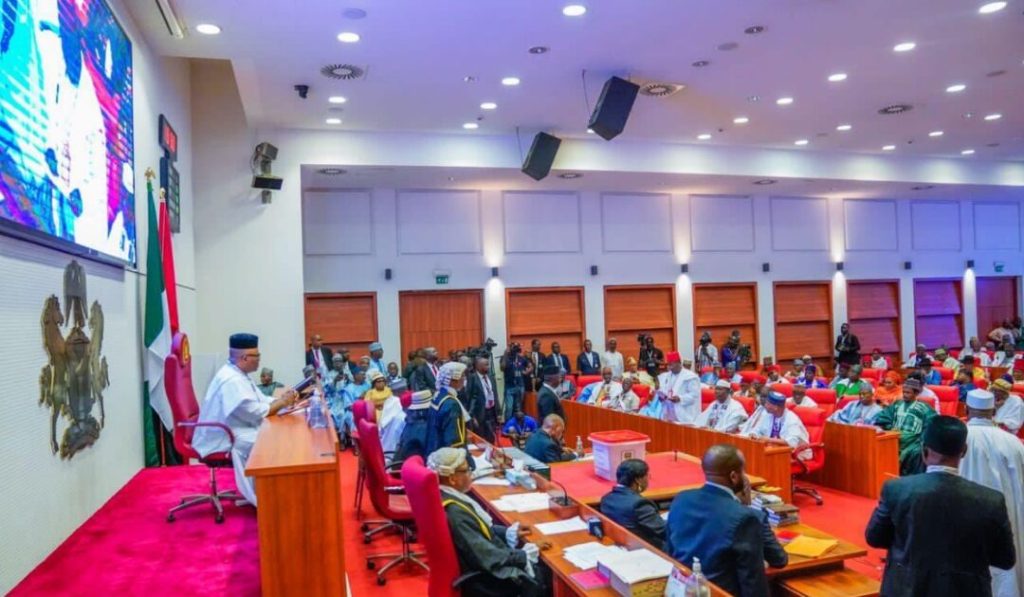Nigeria’s burgeoning cryptocurrency market presents a significant opportunity for economic growth and global prominence, but its unregulated nature poses substantial risks to investors and the nation’s financial stability. The Senate Committee on Capital Market, recognizing this dual-edged sword, is urging the Federal Government to implement a robust regulatory framework for cryptocurrency trading. This call to action stems from the realization that Nigeria, ranking second globally in cryptocurrency usage, is currently witnessing a significant outflow of capital due to the lack of formal oversight in the digital asset space. The sheer volume of crypto transactions within the country, estimated at $59 billion between July 2023 and June 2024, underscores the urgent need for regulation to harness this potential and channel it toward national development. The committee emphasizes that embracing digital finance is no longer a choice but a necessity for Nigeria to remain competitive in the global financial landscape.
The core argument for regulation revolves around capturing the economic benefits of this thriving market. Currently, the lack of oversight allows substantial capital to flow out of the country, depriving Nigeria of potential revenue and hindering its economic growth. By implementing regulations, the government can ensure that these transactions contribute to the national economy, providing a much-needed boost to its development goals. Furthermore, regulation would provide a protective shield for investors, safeguarding them from the inherent risks associated with unregulated markets, such as fraud and scams. The committee warns that continued inaction could sideline Nigeria in the global crypto economy, leaving its citizens vulnerable to exploitation and limiting the country’s potential to benefit from this transformative technology.
The recently enacted Investment and Securities Act 2025 provides a strong legal foundation for regulating digital assets like cryptocurrency. This landmark legislation, sponsored by Senator Osita Izunaso, Chairman of the Senate Committee on Capital Market, introduces sweeping reforms to Nigeria’s capital market, officially recognizing digital assets as legitimate financial instruments. The Act empowers the Securities and Exchange Commission (SEC) to oversee the cryptocurrency market, providing a much-needed regulatory framework for this burgeoning sector. Furthermore, the Act introduces stringent penalties for financial crimes, including a 20-year jail term for operators of Ponzi schemes, a prevalent threat in unregulated financial markets. This new legal framework is expected to instill investor confidence and attract further investment in the digital asset space.
The Investment and Securities Act 2025 is poised to revolutionize Nigeria’s capital market and contribute significantly to President Tinubu’s economic agenda, particularly the ambitious goal of building a $1 trillion economy. Senator Izunaso emphasizes that a robust capital market is essential for achieving this objective, as it serves as the primary engine for mobilizing capital and driving economic growth. He argues that the previous reliance on the money market, led by the Central Bank of Nigeria (CBN), proved inadequate for achieving significant economic expansion, citing the struggles of the CBN’s e-Naira initiative as a prime example. The new Act, by strengthening the capital market and incorporating digital assets, is expected to unlock substantial investment opportunities and propel Nigeria towards its economic targets.
The Act not only addresses the regulatory needs of the cryptocurrency market but also strengthens the SEC’s authority and capabilities. Senator Izunaso highlights the transformative changes within the SEC, emphasizing its enhanced role in protecting investors and promoting market integrity. He stresses the importance of public awareness regarding the provisions of the new Act, as many Nigerians remain unaware of the far-reaching changes and the new opportunities and protections available to them. Plans are underway to launch public awareness campaigns to educate the populace about the Act’s implications and encourage broader participation in the regulated capital market.
In conclusion, the regulation of cryptocurrency trading in Nigeria is not merely a policy option but an economic imperative. The country’s significant participation in the global cryptocurrency market, coupled with the inherent risks of unregulated trading, necessitates immediate action. The Investment and Securities Act 2025 provides the legal framework and empowers the SEC to oversee the digital asset market, creating a safer and more transparent investment environment. By embracing regulation, Nigeria can harness the immense potential of its digital asset economy, protecting investors, generating revenue, and positioning itself as a leader in the global financial landscape. This proactive approach will be crucial for achieving the nation’s economic goals, including the ambitious target of building a $1 trillion economy, and ensuring its long-term financial stability.













